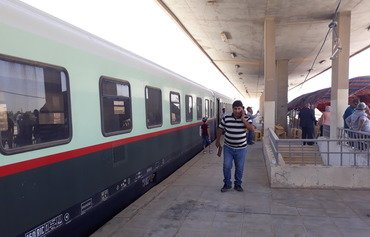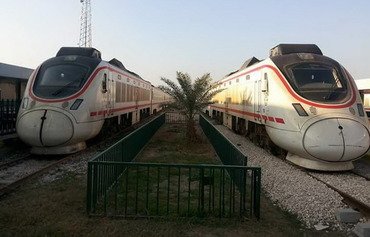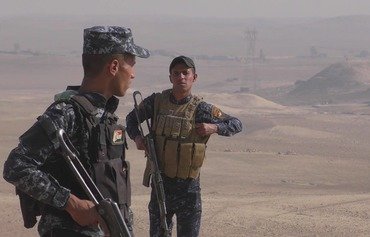Public transportation between the Iraqi capital and cities in the north and west of the country has picked up pace as Iraqi forces reclaim more territory from the "Islamic State of Iraq and the Levant" (ISIL).
Al-Nahda and al-Alawi terminals in the centre of Baghdad are buzzing with passengers travelling to destinations that have been unreachable for some time.
Taxi driver Yasser al-Jubury, 45, told Diyaruna he has resumed work after more than two years of inactivity, driving people from al-Nahda terminal to and from Salaheddine and Ninawa provinces.
Transport to liberated cities in those provinces is going well, he told Diyaruna.
"A few months ago, traveling to cities such as al-Sharqat, al-Qayyarah and al-Hamdaniya was unimaginable," he said. "People now travel to their destinations without fear; roads are safe and everything is normal."
Displaced residents return
Most of the travelers are internally displaced persons (IDPs) who fled their cities after ISIL overran them in the summer of 2014.
Hassan Mahmoud, 40, returned to the Salaheddine province city of Tikrit with his wife and two children several times since ISIL was ousted from his hometown to check on his home and the overall situation.
"The road is now very safe, and so is our city, which has encouraged me to go back this time with my family and end our displacement," he told Diyaruna.
Even though the volume of traffic is not what it used to be, it is recovering at an accelerated pace, according to Mithaq Talib al-Alyawi, general director of the Ministry of Transportation's state company for private transport.
Passenger transport activity currently starts in the early hours of the morning and stops at sundown, he said.
The state company for private transport "was one of the first government companies to resume their regular activity in liberated cities", he said.
"With every city that is liberated, we immediately start operating transport lines to and from it," he added. "We have activated all lines connecting the capital with liberated cities in the provinces of Salaheddine and Anbar."
These include Tikrit, al-Sharqat, Ramadi, Fallujah and Heet, he said.
"Those lines have now been expanded to reach recently liberated cities and areas in Ninawa province such as al-Qayyarah, al-Hamdaniya, Bartella and the east side of the city of Mosul," al-Alyawi said.
Repairing damaged infrastructure
The company plans to rehabilitate all terminals damaged as result of terrorist attacks, al-Alyawi said.
"Some terminals are in good shape, while others are working at half their planned capacity," he said. "We will try to survey all damages and prepare a complete plan for their reconstruction with the support of investment companies."
On January 16th, the company opened a new internal terminal in the central Diyala city of Baquba as part of its plans to help the population and enhance stability in the provinces that have suffered at the hands of ISIL.
"The resumption of transport activity will invigorate all areas of life, and construction, economic and commercial exchange activity," Salaheddine provincial council deputy head Ahmed Nazem al-Azzawi told Diyaruna.
"Our province currently has only one land route reaching the capital, and it is necessary to make it well secured and facilitate traffic on it, to increase its effectiveness," he said.
Terrorism has greatly damaged the province's infrastructure, al-Azzawi said, and it is in need of a broad reconstruction campaign that includes all public facilities and services.
"The resumption of transport to and from liberated areas will strengthen all economic activities there," economist Basem Jamil Antoine told Diyaruna.
"These areas need transport in order to expedite the return of their displaced population and secure its basic needs of food and commercial goods," he said.
"Transportation also allows the people to obtain necessary building supplies to rehabilitate their homes," he added.
"The resumption of activity of this important sector improves the overall situation in the provinces that have been burned by the terrorists’ fire, gives them greater ability to reinvigorate their infrastructure, and expedites their stabilisation and vitality," Antoine said.

![Iraqi officials attend the January 16th opening of a new terminal in the Diyala provincial capital of Baquba, part of an effort to encourage people to travel from Baghdad to liberated areas. [Photo courtesy of the Iraqi Ministry of Transportation]](/cnmi_di/images/2017/03/27/7488-Iraq-Baquba-terminal-600_384.jpg)






